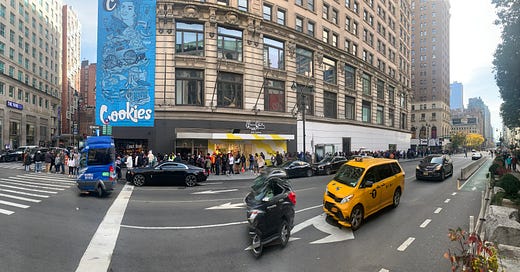Berner's Billion-Dollar Blueprint
Thanks to his Cookies cannabis empire, Gilbert Milam, Jr. now ranks among hip-hop’s wealthiest acts. He could be the genre’s next ten-figure mogul—if he can weather the recent marijuana meltdown.
On an unseasonably warm October afternoon last year, the grand opening of the Cookies flagship store in New York felt like the Super Bowl of cannabis. And the company’s Herald Square space, across the street from Macys in a five-story building once occupied by Desigual, wasn’t even selling weed yet.
But outside, the line stretched two blocks down 6th Ave…
Keep reading with a 7-day free trial
Subscribe to ZOGBLOG by Zack O'Malley Greenburg to keep reading this post and get 7 days of free access to the full post archives.





